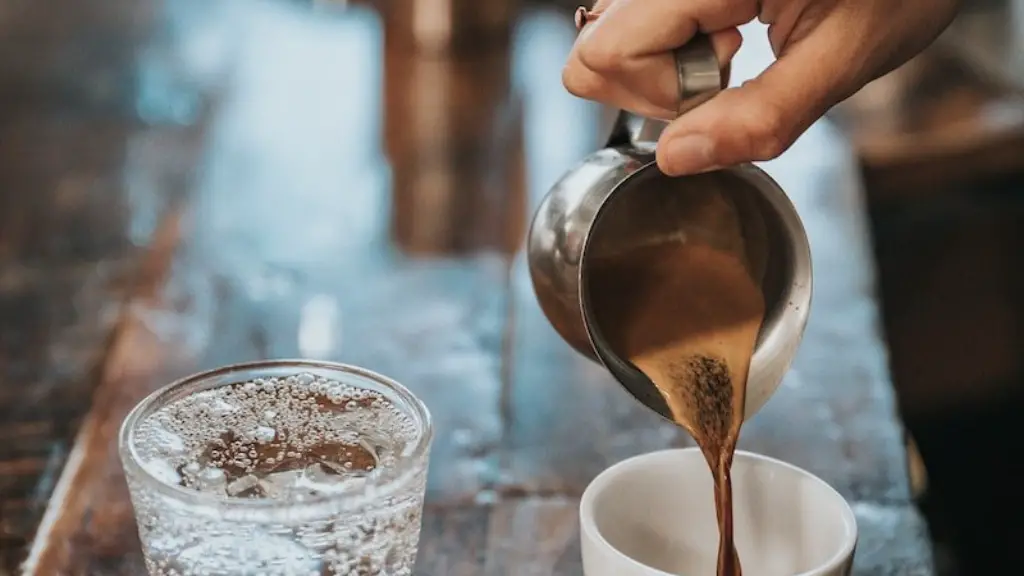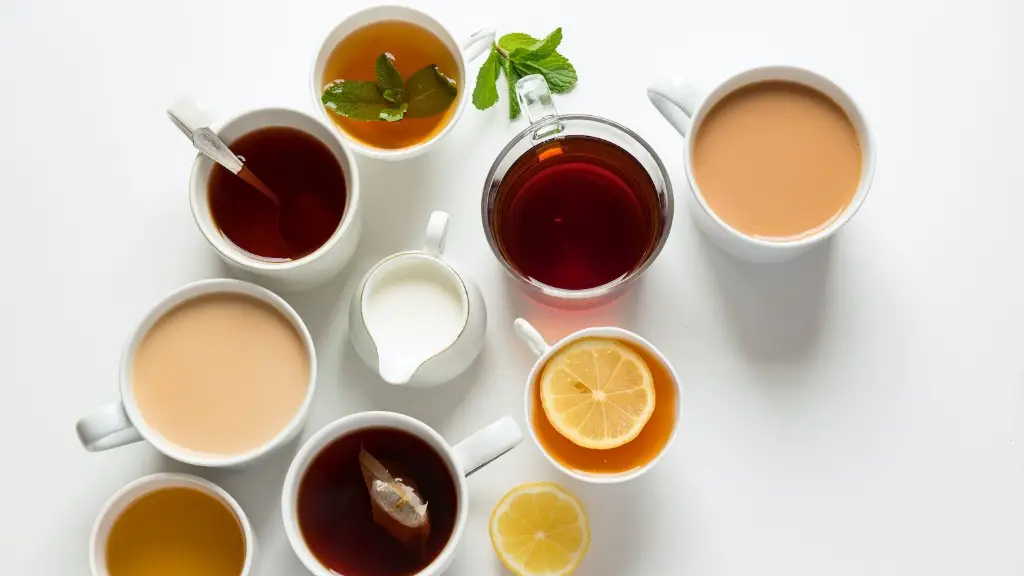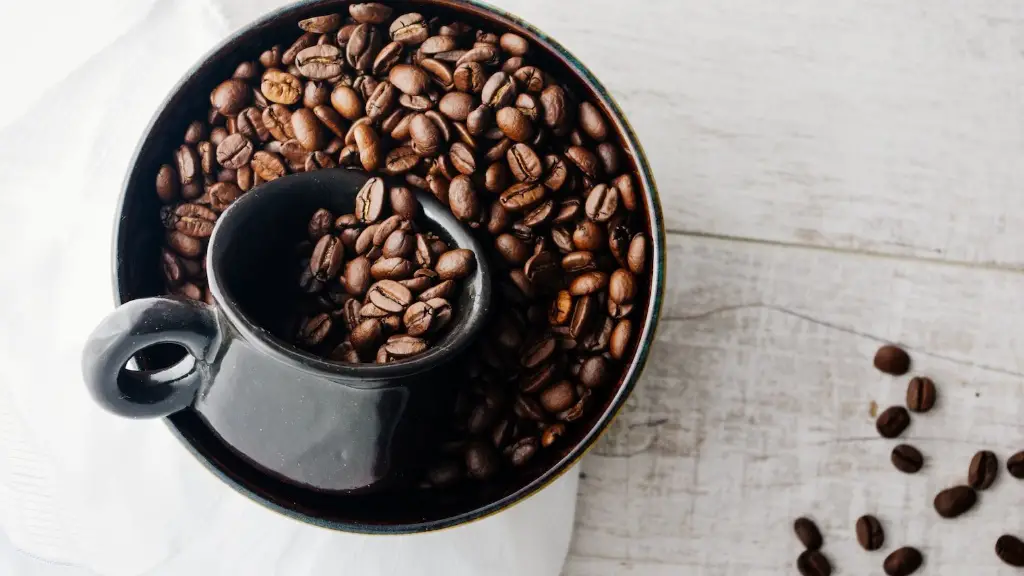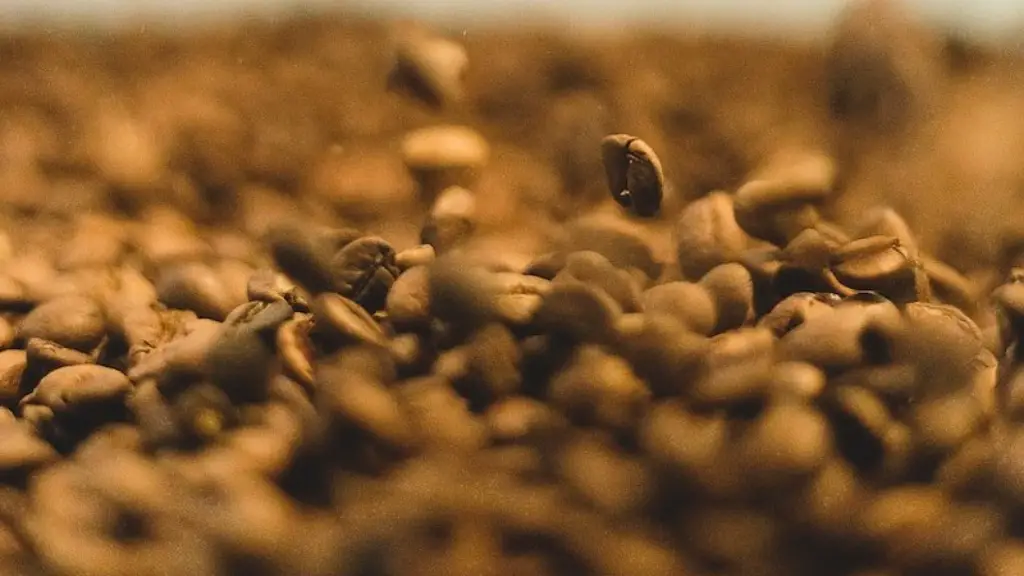Coffee is one of the most popular beverages in the world and people of all ages often enjoy the energizing effects of the caffeine in coffee. But, can you still drink coffee if you no longer have a gallbladder?
It is important to understand the role of the gallbladder in the digestive system. The gallbladder is a small storage organ located on the right side of the abdomen, underneath the liver. It stores bile produced by the liver and is essential for digestion and absorption of dietary fats. The gallbladder has many functions, such as releasing the bile into the duodenum, for example.
For many people, the gallbladder surgery is a necessary and completely safe procedure. People may have gallbladder symptoms, such as pain, stones, infection and inflammation. In this case, the removal of the gallbladder may be the best and only option for some people. There are many risks of having gallbladder issues, such as cholecystitis. The risk of having an attack is higher after meals when bile is needed to break down fat in the diet.
It is possible to drink coffee without a gallbladder. In fact, there are many benefits to drinking coffee in the absence of a gallbladder. For example, studies show that coffee can help to improve digestive health and reduce the risk of certain types of cancer. Additionally, it can also help to boost metabolism and reduce inflammation. Coffee may also help to reduce the risk of heart disease and diabetes.
Experts recommend that if you do not have a gallbladder, you should adjust your intake of coffee accordingly. Coffee may still be enjoyed in moderation, and the best way to ensure this is by limiting the amount of coffee you drink in a day. Additionally, you should avoid drinking coffee on an empty stomach and make sure you are consuming it with foods that are high in fiber. This can help to minimize any potential digestive issues.
Apart from adjusting the intake of coffee, there are some lifestyle changes that can help to improve the overall digestive health in the absence of a gallbladder. Eating a balanced diet, staying hydrated and exercising regularly are all important for maintaining overall digestion and health. Additionally, getting enough sleep and reducing stress levels also help to promote good health.
It is also important to note that if you feel any symptoms after drinking coffee, it is best to stop and consult with a doctor to ensure your safety. There are some risks associated with drinking coffee without a gallbladder, such as irritation of the stomach lining. Additionally, it is important to note that caffeine can interfere with some medications, so be sure to talk to your doctor about any medications you may be taking before drinking coffee.
Natural Remedies
There are some natural remedies that may also be helpful in improving digestion and health in the absence of a gallbladder. For example, taking certain supplements such as digestive enzymes, probiotics, and omega-3 fatty acids, can help to improve overall digestion. Additionally, some herbs such as turmeric, ginger, and chicory root, may also be beneficial for aiding digestion. It is important to note that it is always best to check with your doctor before taking any supplements or herbs.
Additionally, some lifestyle changes can also be beneficial in improving digestion and health. Eating smaller meals more frequently is essential for digestion, as it can help to regulate bowel movements and reduce the risk of heartburn and gas. Additionally, avoiding processed foods, foods high in fat and sugar, and staying properly hydrated is also essential for good health.
Finally, it is also important to pay attention to your body for any signs of discomfort or pain. If you feel any symptoms after drinking coffee or notice any irregularities in digestion, it is best to contact your doctor to ensure your safety.
Medication
It is important to note that some medications are available if you are having difficulty digesting food in the absence of a gallbladder. For example, a doctor may prescribe medications such as antacids and digestive enzymes to help with digestion. Additionally, if stomach acids are too strong, your doctor may also prescribe medications that can help to reduce it. It is important to talk to your doctor about any medications you are taking before taking any medications to improve digestion.
Additionally, some natural remedies may also be helpful in improving digestion. For example, drinking herbal teas such as peppermint and ginger, may also help to maintain digestive health. Additionally, probiotic supplements and foods can help to promote the good bacteria in the gut and aid in digestion.
Finally, it is important to note that it is always best to talk to your doctor before taking any supplements or medications to ensure your safety. Additionally, it is also important to note that some supplements may interact with certain medications, so be sure to talk to your doctor about any medications you are taking before taking any supplements.
Lifestyle Changes
It is also important to make lifestyle changes to improve your digestive health. For example, eating smaller meals more frequently can help to regulate bowel movements and reduce the risk of heartburn and gas. Additionally, avoiding processed foods, foods high in fat and sugar, and consuming more fiber-rich foods can also help to improve digestion. Additionally, staying properly hydrated is also essential for good health.
In addition to eating a balanced diet, exercising regularly can also be beneficial in improving overall digestive health. Exercise can help to stimulate the digestive system and can also help to reduce inflammation in the gut. Additionally, getting enough sleep and reducing stress levels also help to promote good health.
Finally, it is important to monitor your diet and lifestyle habits to make sure you are consuming the right foods for your digestive system. Tracking your food intake, avoiding certain trigger foods, and paying attention to your body for any signs of discomfort or pain can also help to ensure your digestive health.
Probiotics
Probiotics are beneficial bacteria that are essential for good digestive health and can be found naturally in some foods, such as yogurt and sauerkraut. They can also be taken in supplement form and may be beneficial in improving digestion in the absence of a gallbladder. Probiotics can help to restore the balance of bacteria in the gut and can also help to reduce inflammation. Additionally, they can also help to reduce the risk of certain infections and may even help to improve the absorption of nutrients.
It is important to note that probiotics may not be suitable for everyone and should be taken after consulting with a doctor. Additionally, it is important to note that probiotics may interact with certain medications, so it is best to talk to your doctor before taking any supplements.
In addition to probiotics, there are also other natural remedies that may help to improve digestion. For example, drinking certain herbal teas such as peppermint and ginger can help to reduce symptoms of indigestion. Additionally, consuming certain spices such as turmeric and garlic can also be helpful in improving digestion.
Finally, it is also important to monitor your symptoms and pay attention to your body for any signs of discomfort or pain. If you experience any digestive issues after drinking coffee or any other symptom, it is important to contact your doctor to ensure your safety.
Stress Management
Stress can also have a negative impact on the digestion, so it is important to practice stress management to ensure good digestive health. Stress can increase inflammation and negatively affect digestion, so it is important to practice relaxation techniques such as deep breathing and progressive muscle relaxation. Additionally, exercising regularly, getting enough sleep and practicing mindfulness can also help to reduce stress levels.
Additionally, it is important to monitor your diet and lifestyle habits to ensure you are consuming the right foods for your digestive system. Eating smaller meals more frequently, avoiding processed foods and foods high in fat and sugar, and consuming more fiber-rich foods can all help to improve digestion. Additionally, staying properly hydrated is also essential for good health.
Finally, it is important to be aware of any potential triggers that could cause digestive discomfort. For example, certain foods or caffeine can cause digestive issues, so it is important to identify any potential triggers and adjust your diet accordingly. Additionally, if you feel any discomfort or pain after drinking coffee, it is best to discontinue its use and consult with a doctor.





